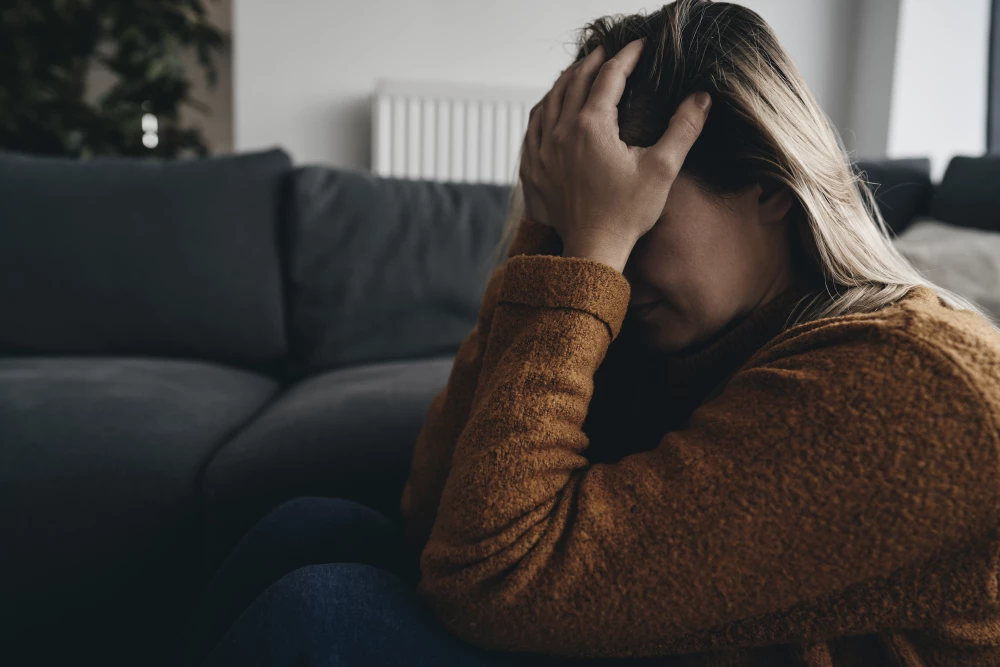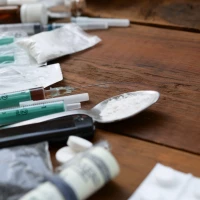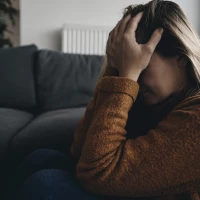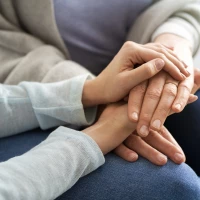
Exploring The Role Of Digital Detox In Modern Wellness

Are you or a loved one living and suffering with a cocaine addiction?
At our private drug rehabilitation centre, our team of drug recovery experts is committed to delivering bespoke, highly effective and comprehensive cocaine treatment plans to help individuals overcome their cocaine addiction.
We understand that each individual has their own unique set of personal circumstances and challenges associated with their addiction which is why all of our treatment plans are tailored to the individual.
Cocaine rehab programmes help an individual to overcome their cocaine addiction by delivering the essential treatment to get them sober and on the road to recovery, with skills to prevent relapse in the future.
Cocaine treatment programmes usually fall into 1 of 2 types: inpatient and outpatient rehab.
Inpatient, or residential rehab involves an individual temporarily living at the rehab facility. This allows for more focused around the clock care and support, unlike outpatient rehab which only provides part-time support.
Inpatient rehabilitation programmes tend to be more suitable for individuals with more serious cocaine addictions, helping them to achieve long-term recovery results.
Outpatient cocaine rehab requires an individual to attend during the day for the treatment and then return home again at the end of the day or at the end of their rehab session.
Outpatient treatment tends to work better for individuals with less severe cocaine addictions and people who have daily responsibilities such as childcare.
In the UK, people struggling with a cocaine addiction can access free cocaine addiction treatment services provided by the National Health Service (NHS), however, with such limited funding, there simply aren’t enough resources to meet the needs of all those who require help.
This can often mean that many people don’t qualify for residential treatment on the NHS, despite desperately needing help with their drug addiction. Those who do qualify often have to wait incredibly long waiting times first before receiving the help they need.
This is just one of the reasons why private rehab treatment is a better option for lots of people.
Private residential drug rehab treatment has been proven to be the most effective known method for treating cocaine addiction.
In 2012, the NHS’ National Treatment Agency for Substance Misuse UK conducted a study that examined the success rates of every private rehab clinic across the UK.
The study revealed that the best performing facilities had incredibly high success rates with 60% to 80% of individuals who received residential rehab treatment staying sober for at least five years after they completed treatment.
The top private residential rehab clinics saw success rates that were many times better than those achieved through NHS and community-based services like narcotics anonymous.
This means you have a much better chance of achieving long-term recovery from cocaine addiction by undergoing private cocaine rehab.
In the last few years, rehab experts have repeatedly affirmed that residential treatment at a private clinic works better than any other treatment option.
The first step to recovery is to stop the drug use and remove the substance from the body through a cocaine detox.
When an individual is addicted to cocaine, their body can become both physically and psychologically dependent on the substance in order to function.
Then, when they suddenly stop the drug use, they can experience very unpleasant withdrawal symptoms. These symptoms include:
Agitation and restless behaviour
Depression
Anxiety
Fatigue
Discomfort
Increased appetite
Vivid and unpleasant dreams
Lethargy
Some of these symptoms, such as depression and strong cravings can last for months even after stopping and the severity of the symptoms depends on the potency of the cocaine and the route of administration the individual chooses.
For example, someone who smokes crack cocaine will typically experience withdrawal sooner and may end up taking more in order to stay high for longer.
Withdrawal symptoms can be incredibly difficult to manage on your own and individuals often relapse in order to ease them.
That’s why at our private rehabilitation treatment centre, we can facilitate the safe removal of cocaine from your body, making the symptoms more manageable through a range of different treatments, getting you on the road to recovery,
Lots of people with addictions are of the belief that once they remove the cocaine from their system, that they will be able to stay sober and lead a drug free life.
However, addiction is a psychological disease that comes as a result of an individual using cocaine for a prolonged period of time in order to cope with their day-to-day lives.
This could be because an individual is trying to cope with depression, anxiety, stress, grief or something like a divorce or job loss.
The only way to overcome a cocaine addiction is to identify and treat the root causes of the addiction through treatments such as psychotherapy like the 12 steps and cognitive behavioural therapy (CBT) and group therapy sessions.
At our private cocaine rehab centre we work alongside individuals to help them identify and understand the root of their addiction and teach them healthier skills and methods in which to cope with it. This then gives them all of the necessary tools to prevent a relapse in the future.
Before seeking treatment for cocaine addiction, an individual must first recognise that they have a problem and want to stop using cocaine. Sometimes, it can take family and friends staging an intervention before someone realises they have an addiction.
Diagnosing an addiction can often be tricky for a number of reasons. The first reason is that many signs and symptoms of addiction are similar to those of other mental health problems such as anxiety, depression and ADHD.
The second reason is that nowadays, much like alcohol abuse, frequent drug abuse on nights out is becoming normalised, so whilst someone may be regularly using cocaine every week, they may not be addicted to it.
However, some common signs of a cocaine addiction include:
Intense cravings for cocaine
Feeling the need to take more cocaine in order to get the desired effect
Feeling agitated, depressed and restless when you stop taking cocaine
Being unable to reduce or stop taking cocaine, even when you try
Spending lots of time thinking about when you will next use cocaine
Ignoring concerns from family and friends about your cocaine use
Failing to stop using the drug despite the negative consequences it brings
Acting impulsively
Attempting to borrow or steal money in order to buy cocaine
Being dishonest or secretive about your activities, whereabouts and associates
Engaging in risky behaviour that you wouldn’t usually do
Poor decision making
Psychosis
Bursts of euphoria
Elevated body temperature
High blood pressure
Persistent nosebleeds
Excessive perspiration (sweating)
Stroke
Heart attack
Cardiac arrest
If you notice any of these symptoms as a result of your cocaine abuse, it may be time to seek cocaine addiction treatment.
You can get a free confidential assessment at our private rehab centre in . Request a free callback to start the admission process today.
Much like other drugs, repeated use of cocaine, such as at the weekends on nights out, can cause long-term changes in the brain’s reward circuit due to the way in which it adapts to the extra dopamine (one of the ‘happy’ hormones) produced.
As the brain has become accustomed to this extra dopamine level, it can no longer function the same way when the individual’s levels return to normal, leaving them feeling down and exacerbating any existing mental health conditions.
As a result, the individual may start to feel as if they cannot cope unless they use cocaine again.
As well as strong feelings of negativity, the individual can also experience very unpleasant withdrawal symptoms when they stop taking cocaine. This is called a physical dependence.
After prolonged use, it is also possible to build a tolerance to the cocaine, requiring higher doses more frequently in order to feel the same high once felt initially. This can be incredibly dangerous and could lead to a serious overdose.
Cocaine detoxification involves supervised medical care that helps the individual manage their withdrawal symptoms in a safe, drug-free environment, eliminating the chances of an immediate relapse.
Unlike other types of substance addictions, there aren’t yet any medications that can be used to treat a cocaine addiction, so cocaine detox mostly focuses on providing support, care and a healthy diet plan to help their physical well being before starting the cocaine rehab programme.
The cocaine detoxification process typically lasts between 7 and 10 days, though this can vary depending on the severity of your cocaine addiction and the type of treatment required.
There’s no one answer to how long cocaine rehab lasts as every individual and their set of circumstances are unique and some may require cocaine addiction treatment longer than others.
However, on average, individuals tend to stay in residential rehabilitation between 28 and 90 days.
The first step to recovery is to seek treatment. Find the right treatment for your cocaine addiction today.
Drug Rehab - https://rehab-centre.org.uk/
Alcohol rehab - https://rehab-centre.org.uk/alcohol-addiction-rehab/
Gambling addiction rehab - https://rehab-centre.org.uk/gambling-addiction/
Cannabis rehab - https://rehab-centre.org.uk/cannabis-rehab/
Diazepam rehab - https://rehab-centre.org.uk/benzodiazepine-rehab/
Ketamine rehab - https://rehab-centre.org.uk/ketamine-rehab/
Cocaine rehab - https://rehab-centre.org.uk/cocaine-rehab/




